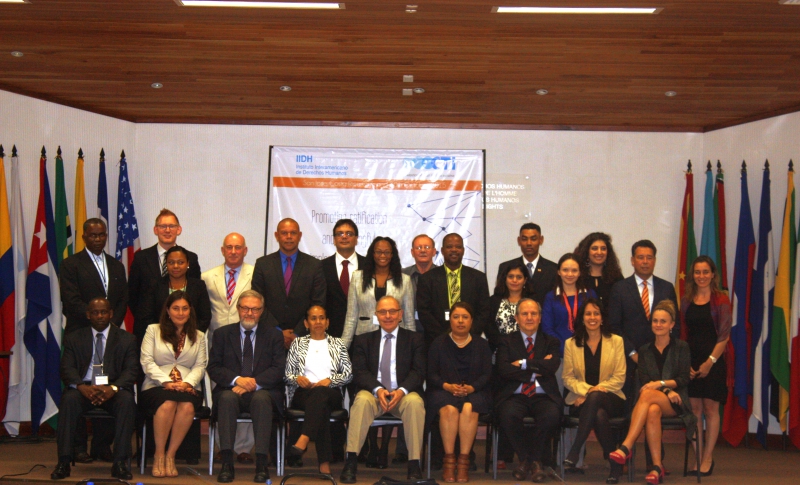CTI Costa Rica event a major step forward towards universal ratification in the Americas
San José, Costa Rica, 29-30 October – A CTI regional event has taken place to promote UNCAT ratification to non-States parties from the Caribbean region. The meeting is seen as an important first step in a wider campaign to achieve universal ratification of the Convention in the region.

The meeting was organised by the CTI and the Inter-American Institute of Human Rights. Senior policing and Justice officials from the Caribbean states of Dominica, Grenada, Jamaica, Saint Kitts and Nevis, Saint Lucia and Suriname participated in the event.
Participants heard from a range of high level speakers, including the Minister of Justice of Costa Rica, Cecilia Sanchez Romero, Danish Ambassador to the UN in Geneva, Carsten Staur, CAT Chair, Claudio Grossman, and UN Special Rapporteur on Torture, Juan Mendez. State representatives from Brazil, Mauritius, Costa Rica, Fiji and Chile also shared their experience of ratification of the Convention and discussed related reforms of criminal justice and police procedures. Furthermore, participants were introduced to UNCAT obligations by APT’s Legal Adviser, Matt Sands, and to the preventive approach and OPCAT by APT’s Brazil delegate, Sylvia Días.
Minister of Justice of Costa Rica, Cecilia Sanchez Romero, opened the meeting by stressing that “there is absolutely no way to use torture in a democracy. The prohibition against torture is non-negotiable”.
By not ratifying the Convention, CAT Chair Claudio Grossman explained that “states exclude themselves from the ability to influence other states” and that “ratification did not have to be preceded by full compliance with the Convention but that ratification leads to improvements to national legal and criminal justice systems.”
On the issue of reform, Special Rapporteur on Torture, Juan Mendez, reminded states that “ratifying UNCAT was instrumental to the implementation of reforms” but that regardless, states are bound by most UNCAT obligations as “they are seen as part of international customary law and some are even seen as jus cogens norms.”
The meeting also addressed the Optional Protocol to the Convention (OPCAT) and what obligations come with ratification. Former Minister of Justice of Costa Rica and former ICC judge, Elisabeth Odio Benito, explained that “OPCAT was breaking new grounds by introducing a system focussing on torture prevention rather than reaction once a situation of torture had already occured.”
Finally, the Ambassador of Denmark to the UN in Geneva, Carsten Staur, was clear that this event was just the first step in a longer term process to secure universal ratification of the Convention in the region. He then set out how the CTI could assist states through their ratification and implementation processes.
Read the full report here.
Click here for more information on how the CTI can help states considering ratification of the Convention.

